
United Nations Security Council Resolution 1758, adopted unanimously on June 15, 2007, after reaffirming all resolutions on the situation in Cyprus, particularly Resolution 1251 (1999), the Council extended the mandate of the United Nations Peacekeeping Force in Cyprus (UNFICYP) for six months until December 15, 2007.

United Nations Security Council Resolution 261, adopted unanimously on December 10, 1968, after reaffirming previous resolutions on the topic, and noting recent encouraging developments, the Council extended the stationing in Cyprus of the United Nations Peacekeeping Force in Cyprus for a further period, now ending on June 15, 1969. The Council also called upon the parties directly concerned to continue to act with the utmost restraint and to co-operate fully with the peacekeeping force.

United Nations Security Council Resolution 274 was adopted unanimously on December 11, 1969. After reaffirming previous resolutions on the topic, and noting recent encouraging developments, the Security Council extended the stationing in Cyprus of the United Nations Peacekeeping Force in Cyprus for a further period, now ending on June 15, 1970. The Council also called upon the parties directly concerned to continue to act with the utmost restraint and to co-operate fully with the peacekeeping force.

United Nations Security Council resolution 682, adopted unanimously on 21 December 1990, after recalling Resolution 186 (1964) and all resolutions on Cyprus up to the most recent Resolution 680 (1990), the Council expressed its concern regarding the "chronic and ever-deepening financial crisis" facing the United Nations Peacekeeping Force in Cyprus.

United Nations Security Council resolution 831, adopted on 27 May 1993, after reaffirming Resolution 186 (1964) and all subsequent resolutions on Cyprus, the Council discussed the financial situation surrounding the United Nations Peacekeeping Force in Cyprus (UNFICYP).

United Nations Security Council resolution 969, adopted unanimously on 21 December 1994, after recalling resolutions 186 (1964), 831 (1993) and 889 (1993), the Council expressed concern at the lack of progress in the political dispute in Cyprus and extended the mandate of the United Nations Peacekeeping Force in Cyprus (UNFICYP) until 30 June 1995.

United Nations Security Council resolution 1178, adopted unanimously on 29 June 1998, after reaffirming all past resolutions on the situation in Cyprus, the Council extended the mandate of the United Nations Peacekeeping Force in Cyprus (UNFICYP) for a further six months until 31 December 1998.

United Nations Security Council resolution 1331, adopted unanimously on 13 December 2000, after reaffirming all resolutions on the situation in Cyprus, including Resolution 1251 (1999), the Council extended the mandate of the United Nations Peacekeeping Force in Cyprus (UNFICYP) for a further six months until 15 June 2001.
United Nations Security Council resolution 1354, adopted unanimously on 15 June 2001, after reaffirming all resolutions on the situation in Cyprus, including Resolution 1251 (1999), the Council extended the mandate of the United Nations Peacekeeping Force in Cyprus (UNFICYP) for a further six months until 15 December 2001.
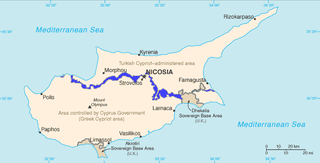
United Nations Security Council resolution 1384, adopted unanimously on 14 December 2001, after reaffirming all resolutions on the situation in Cyprus, including Resolution 1251 (1999), the council renewed the mandate of the United Nations Peacekeeping Force in Cyprus (UNFICYP) for a further six months until 15 June 2002.

United Nations Security Council resolution 1416, adopted unanimously on 13 June 2002 after reaffirming all resolutions on the situation in Cyprus, including Resolution 1251 (1999), the council extended the mandate of the United Nations Peacekeeping Force in Cyprus (UNFICYP) for a further six months until 15 December 2002.
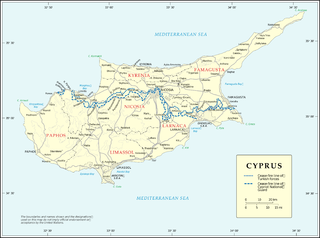
United Nations Security Council resolution 1442, adopted unanimously on 25 November 2002, after reaffirming all resolutions on the situation in Cyprus, particularly Resolution 1251 (1999), the council extended the mandate of the United Nations Peacekeeping Force in Cyprus (UNFICYP) for an additional six months until 15 June 2003.

United Nations Security Council resolution 1486, adopted unanimously on 11 June 2003, after reaffirming all resolutions on the situation in Cyprus, particularly Resolution 1251 (1999), the council extended the mandate of the United Nations Peacekeeping Force in Cyprus (UNFICYP) for an additional six months until 15 December 2003.

The United Nations Security Council resolution 1517 was adopted unanimously on 24 November 2003, after reaffirming all resolutions on the situation in Cyprus, particularly Resolution 1251 (1999), the council extended the mandate of the United Nations Peacekeeping Force in Cyprus (UNFICYP) for an additional six months until 15 June 2004.

Under United Nations Security Council resolution 1548, adopted unanimously on 11 June 2004, after reaffirming all resolutions on the situation in Cyprus, particularly Resolution 1251 (1999), the council extended the mandate of the United Nations Peacekeeping Force in Cyprus (UNFICYP) for an additional six months until 15 December 2004.
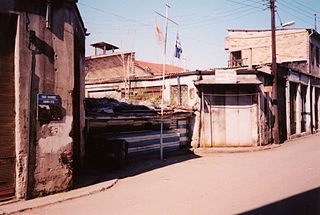
United Nations Security Council resolution 1568, adopted unanimously on 22 October 2004, after reaffirming all resolutions on the situation in Cyprus, particularly Resolution 1251 (1999), the council extended the mandate of the United Nations Peacekeeping Force in Cyprus (UNFICYP) for an additional period until 15 June 2005.
United Nations Security Council resolution 1604, adopted unanimously on 15 June 2005, after reaffirming all resolutions on the situation in Cyprus, particularly Resolution 1251 (1999), the Council extended the mandate of the United Nations Peacekeeping Force in Cyprus (UNFICYP) for an additional period until 15 December 2005.
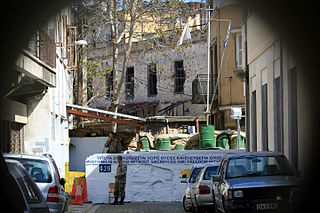
United Nations Security Council Resolution 1642, adopted unanimously on 14 December 2005, after reaffirming all resolutions on the situation in Cyprus, particularly Resolution 1251 (1999), the council extended the mandate of the United Nations Peacekeeping Force in Cyprus (UNFICYP) for an additional period until 15 June 2006.
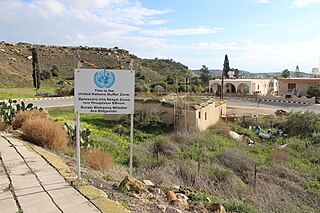
United Nations Security Council Resolution 1986, adopted unanimously on June 13, 2011, after reaffirming all resolutions on the situation in Cyprus, particularly resolutions 1251 (1999) and 1953 (2010), the Council extended the mandate of the United Nations Peacekeeping Force in Cyprus (UNFICYP) for a further six months until December 15, 2011, calling for an intensification of negotiations between the Greek and Turkish Cypriot leaders.

United Nations Security Council Resolution 1728, adopted unanimously on December 15, 2006, after reaffirming all resolutions on the situation in Cyprus, particularly Resolution 1251 (1999), the Council extended the mandate of the United Nations Peacekeeping Force in Cyprus (UNFICYP) for six months until June 15, 2007.















